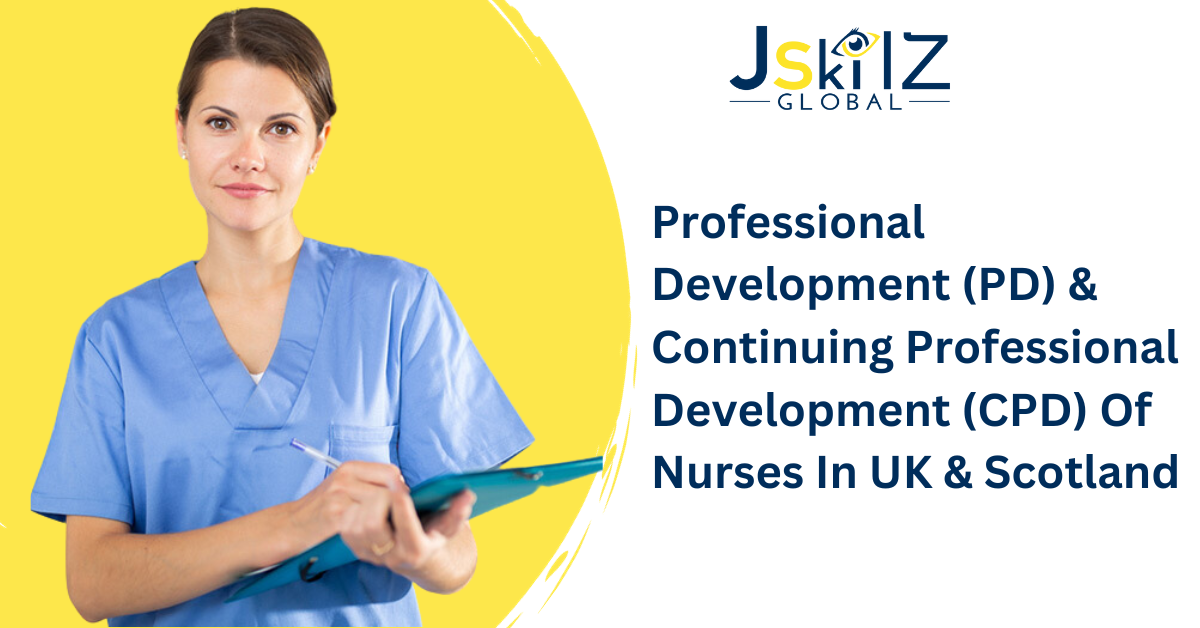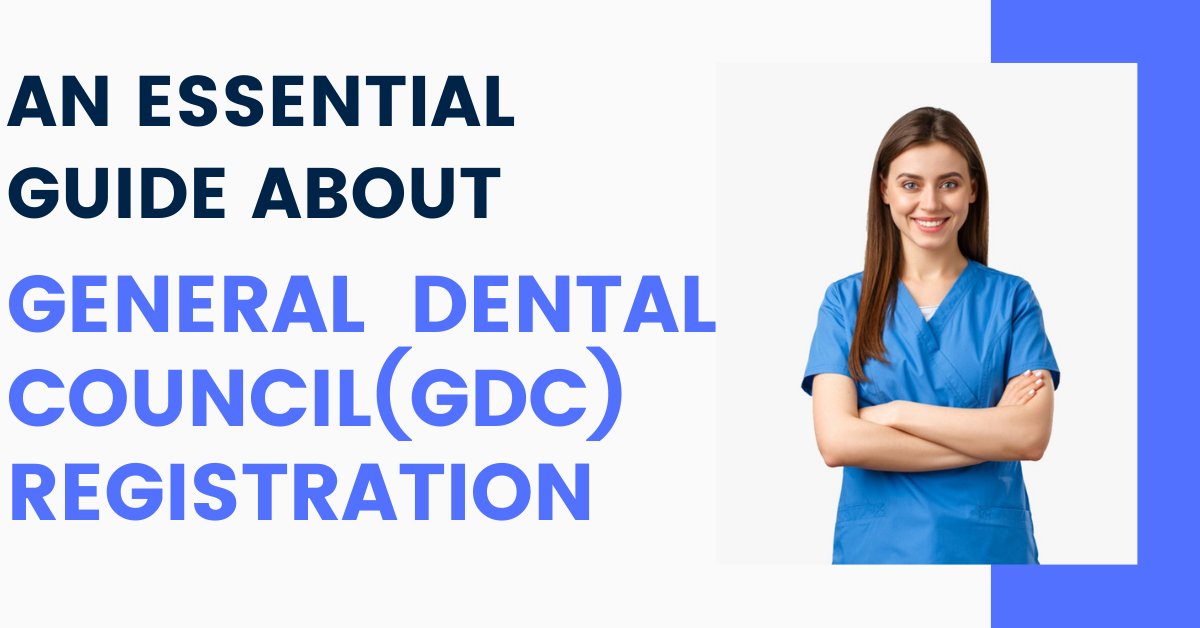Professional Development (PD) & Continuing Professional Development (CPD) Of Nurses In UK & Scotland

Professional Development of Nurses in UK & Scotland
A nurse in the UK can achieve professional growth by taking various steps and pursuing opportunities that enhance their skills, knowledge, and career prospects. Professional development for nurses in the UK is essential for maintaining high-quality patient care and career advancement.
Continuing Professional Development (CPD) is a key component of a nurse's ongoing education and growth. Here's a beautifully explained guide on how a nurse can achieve professional growth while practicing in the UK:
Nurses in the UK typically begin their careers by completing a nursing degree program recognized by the Nursing and Midwifery Council (NMC). To grow professionally a nurse should embrace a lifelong learning mind-set. Attend workshops, seminars, and conferences to stay updated with the latest advancements in nursing.
Consider pursuing postgraduate degrees, certifications, or advanced practice courses in areas like nurse prescribing, advanced clinical practice, or leadership and management.
Newly qualified nurses often participate in NQN programs or preceptorships. These programs provide additional support, mentorship, and structured learning during the early stages of their nursing careers.
Nurses have the opportunity to specialize in various fields such as pediatric nursing, mental health nursing, critical care nursing, and more. They can also pursue advanced practice roles, including nurse practitioners, nurse consultants, and clinical nurse specialists.
Nurses have opportunities for career progression in various roles, including clinical practice, management, education, research organizations.
Pursue leadership roles within your healthcare facility, such as charge nurse or nurse manager positions. Leadership experience can enhance your management skills and open doors to higher-level administrative roles.
Also Read: Updated Information To Get Nursing Jobs In UK - Step Wise
Gain diverse experience by working in various healthcare settings, such as hospitals, clinics, home healthcare, or nursing homes. Different environments provide exposure to a wide range of patient populations and nursing practices.
Seek out experienced mentors who can provide guidance and share their expertise. Participate in clinical supervision sessions to reflect on your practice and receive feedback.
Build professional relationships with colleagues, physicians, and other healthcare professionals. Collaborative partnerships can lead to research opportunities and career advancements.
Embrace Technology: Stay current with healthcare technology and electronic health record systems. Proficiency in healthcare IT can enhance your efficiency and marketability.
A nurse can develop cultural competence and ethical decision-making skills to provide culturally sensitive care and navigate complex ethical dilemmas. Prioritize self-care to maintain physical and emotional health. A healthy work-life balance is essential for sustained professional growth.
They can engage in nursing advocacy and participate in healthcare policy discussions to influence positive changes in the profession and patient care.
The Nursing and Midwifery Council (NMC) regulates nursing professionals in the UK, ensuring they meet professional standards and adhere to the Code of Professional Standards. Nurses must renew their registration with the NMC annually and meet all NMC requirements.
Nurses often join professional organizations, such as the Royal College of Nursing (RCN) or specialty-specific associations, to access additional resources, networking opportunities, and support for their professional development.
Continuing Professional Development (CPD):
CPD is a crucial requirement for all registered nurses in the UK and Scotland. CPD helps nurses maintain and enhance their knowledge, skills, and competence throughout their careers. Key points about CPD for nurses include:
- CPD Hours: Nurses are required to complete a certain number of CPD hours over a specified period. The NMC required a minimum of 35 hours of CPD per year.
- CPD Categories: CPD activities are categorized into various areas, including clinical practice, leadership and management, education and training, and research and development. Nurses are encouraged to cover a broad range of topics to ensure well-rounded development.
- Reflective Practice: Reflective practice is an essential element of CPD. Nurses are encouraged to reflect on their experiences and learning, consider how it impacts their practice, and make improvements based on this reflection.
- Record Keeping: Nurses must maintain a portfolio of their CPD activities and be prepared to provide evidence of compliance if requested by the NMC during an audit.
- CPD Activities: CPD activities can include attending courses, workshops, and conferences, participating in online learning, reading relevant literature, and engaging in clinical audits or research.
Professional growth in nursing is a continuous journey. By actively seeking opportunities for education, specialization, leadership, and personal development, nurses can achieve their career goals while making a meaningful impact on patient care and the healthcare system in the UK.
For more clarification you can contact us freely via info@jskilzglobal.com. We not only provide expert advice but also help overseas talented nurses to practice in UK.
To check current job openings, Click Here and Post your Medical CV Click Here!
Click Here to join our Official Facebook Group for timely updates on Healthcare Jobs opportunities UK/UAE.
Also Read: Changes To NMC New Test Of Competence For Nurses CBT










